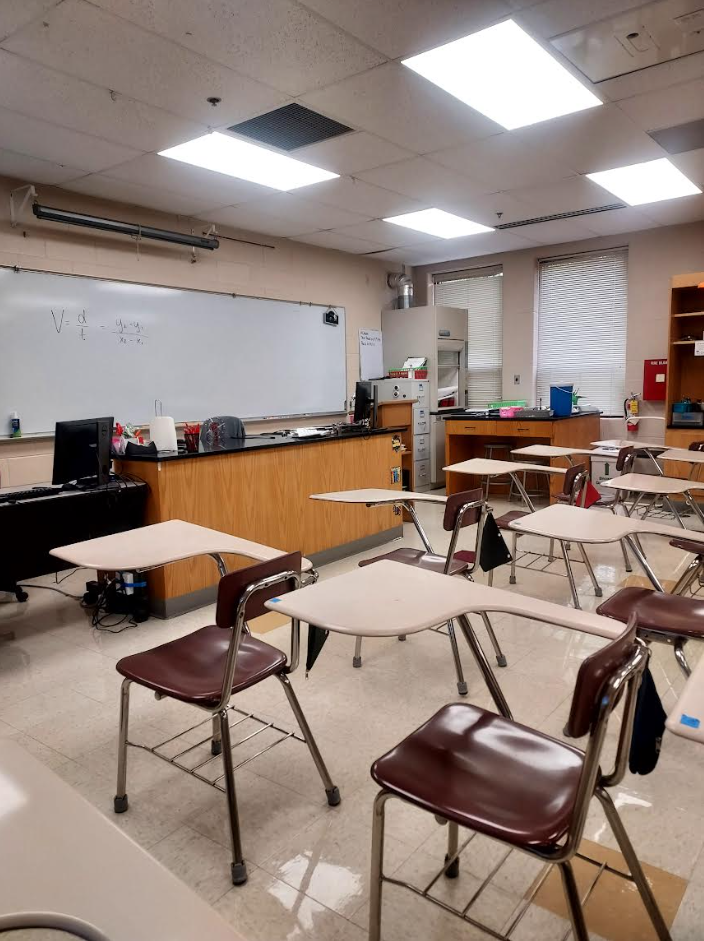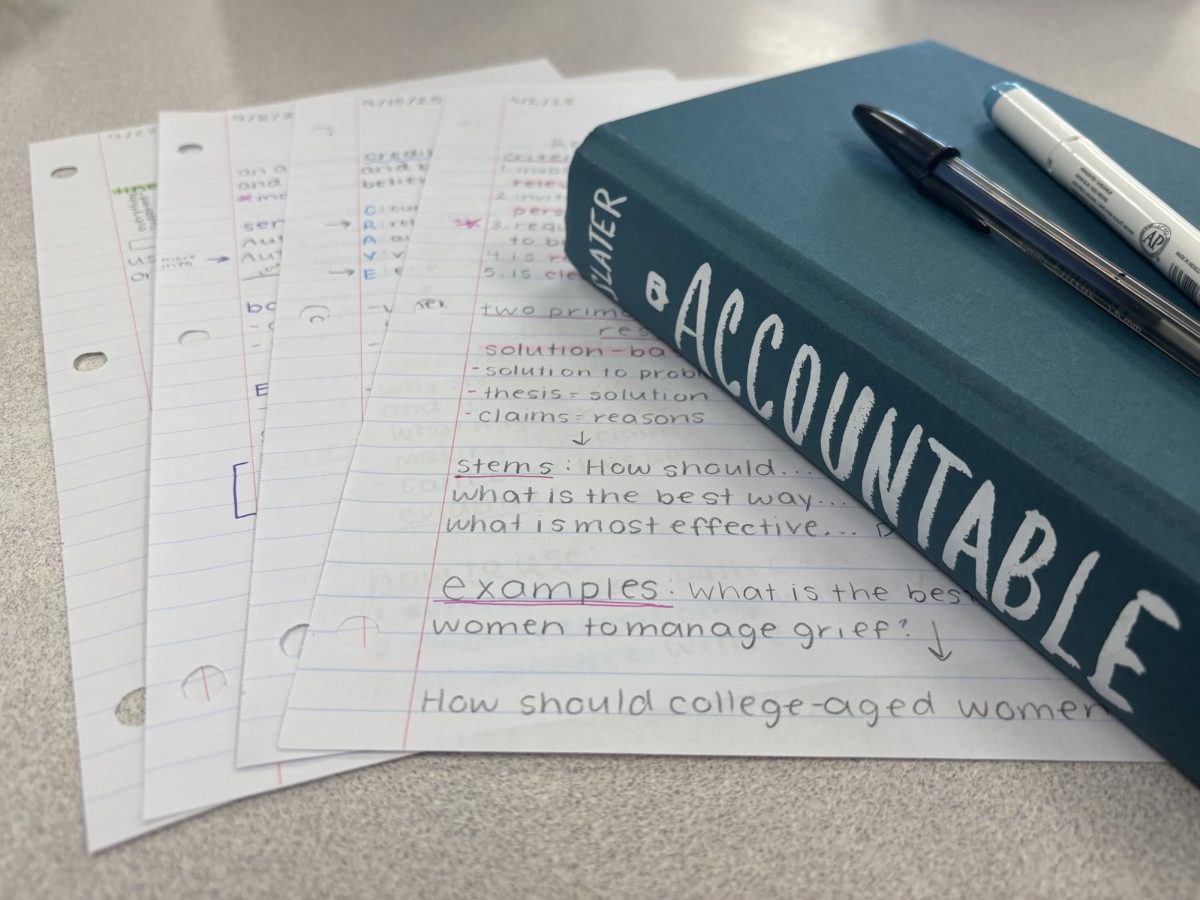Recently, Lockport District 205 has adapted a new way to store their phones in class to avoid distractions: Porter Pockets. In every classroom, students are instructed to put their phones in numbered pockets in order to avoid usage during class instruction. Everyone involved has mixed opinions about the pockets, including students, teachers, and parents.
The reason these pockets were installed school-wide is due to the major distractions phones were causing in past years. Students were able to cheat, text friends, and go on social media during class, the ultimate distraction. The pockets have minimized these distractions and has resulted in heightened focus on school work, overall reaching to improve students grades and less missing assignments.
Though Porter Pockets can help students focus more on school work, they can also have the opposite effect. A fellow student was recently texting her mom about a personal problem during the passing period, when our teacher instructed her to put her phone in the Porter Pocket.
“I was more worried about what my mom was texting me than what was happening in class,” she told me, “I could barely focus on the lesson.” The Porter Pockets had a more distracting impact than having her phone in her hand. Sometimes, the peace of mind of having your phone is more beneficial than having it taken away. Teachers praise that we as students should be treated and act like adults, yet by the district taking away our phones, it forces teachers to treat us like children.
One of the most controversial uses of the Porter Pocket is during study hall and compass. Compass and study hall is a time for students to focus on personal work. This time is helpful for busy schedules and extra work. However, many students prefer to do all their work at home. This leads to a whole combined hour– 35 minutes in Compass and half an hour in study hall of boring silence and waiting for time to pass. If students were given the opportunity to have their phones, they could decide how they want to use their own time in these class periods.
Another way phones and personal technology are beneficial in the classroom is to listen to music. Background music helps improve focus, block out distractions, and maintain attention during studying, as stated by the National Institute of Health (NIH). Along with phones, AirPods are restricted, so it takes away the opportunity to listen to music while studying.
The NIH performed a study on forty students. They set in front of them a complete variation of the Psychomotor Vigilance Task, a text that has long been used to measure sustained attention, in silence and with their self-selected or preferred music in the background. The study shows that “background music increased the proportion of task-focus states by decreasing mind-wandering states but did not affect external distraction states.”
There is no doubt Porter Pockets have their pros and cons at Lockport. They help students be more productive, yet the backlash from students has been mostly negative and takes away the opportunity for students to learn how to manage electronic use.
How do you think Porter Pockets should be used at Lockport?







Sarah • Sep 3, 2025 at 8:18 pm
As a college student and a LTHS alumni who just graduated, I think the Porter Pockets aren’t teaching the students how to practice for college. In college, there are no such things as Porter Pockets. These students need to learn how to manage electronic usage/screentime. Enforcing the Porter Pockets, you are diminishing the ability for the students to learn to separate from electronics on their own.